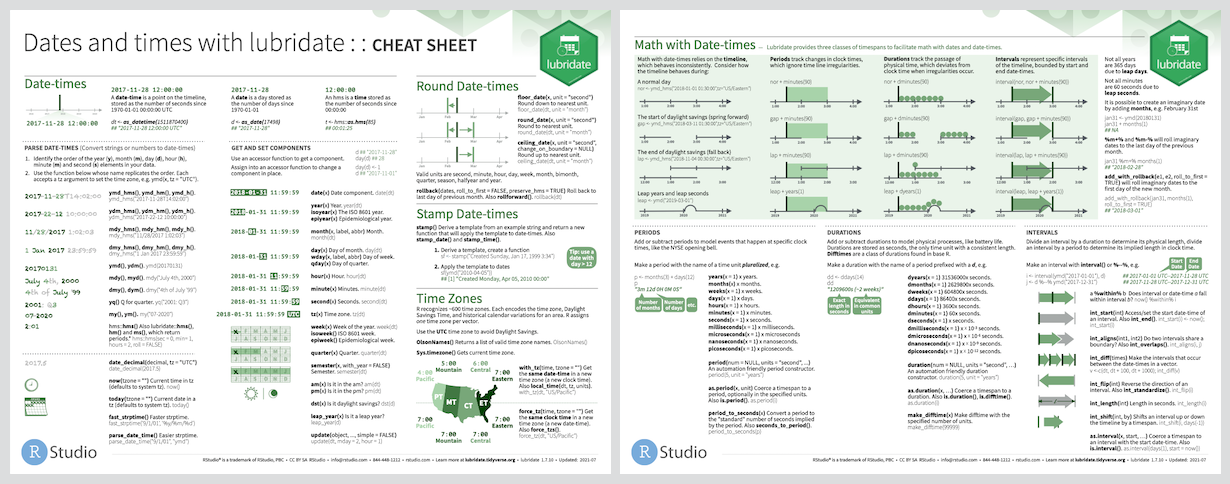Overview
Date-time data can be frustrating to work with in R. R commands for date-times are generally unintuitive and change depending on the type of date-time object being used. Moreover, the methods we use with date-times must be robust to time zones, leap days, daylight savings times, and other time related quirks, and R lacks these capabilities in some situations. Lubridate makes it easier to do the things R does with date-times and possible to do the things R does not.
If you are new to lubridate, the best place to start is the date and times chapter in R for data science.
Installation
# The easiest way to get lubridate is to install the whole tidyverse:
install.packages("tidyverse")
# Alternatively, install just lubridate:
install.packages("lubridate")
# Or the development version from GitHub:
# install.packages("devtools")
devtools::install_github("tidyverse/lubridate")Features
-
Easy and fast parsing of date-times:
ymd(),ymd_hms,dmy(),dmy_hms,mdy(), … -
Simple functions to get and set components of a date-time, such as
year(),month(),mday(),hour(),minute()andsecond(): -
Helper functions for handling time zones:
with_tz(),force_tz()
Lubridate also expands the type of mathematical operations that can be performed with date-time objects. It introduces three new time span classes borrowed from https://www.joda.org.
durations, which measure the exact amount of time between two pointsperiods, which accurately track clock times despite leap years, leap seconds, and day light savings timeintervals, a protean summary of the time information between two points
Code of Conduct
Please note that the lubridate project is released with a Contributor Code of Conduct. By contributing to this project, you agree to abide by its terms.

